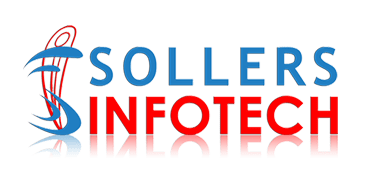Revolutionizing Healthcare: The Impact of Automation in the Healthcare Sector
The healthcare sector has been undergoing a remarkable transformation in recent years, thanks to the rapid advancements in technology and automation. As the world grapples with complex healthcare challenges, automation is emerging as a powerful tool that is revolutionizing the way healthcare services are delivered, improving patient outcomes, and enhancing overall efficiency. In this article, we will explore the profound impact of automation in the healthcare sector, from streamlined administrative tasks to cutting-edge surgical procedures.
- Streamlining Administrative Tasks
One of the most significant benefits of automation in healthcare is the streamlining of administrative tasks. Healthcare facilities are often bogged down by paperwork, appointment scheduling, and record-keeping. Automation tools like Electronic Health Records (EHR) systems have made it possible to digitize and automate these processes. This not only reduces the risk of errors but also frees up valuable time for healthcare professionals to focus on patient care.
- Enhanced Patient Care
Automation has improved the quality of patient care by providing healthcare providers with real-time access to patient data and medical histories. This enables more accurate diagnoses, better treatment planning, and a higher level of personalized care. Additionally, automated reminders and notifications help patients stay on track with their medications and follow-up appointments, ultimately leading to improved health outcomes.
- Telemedicine and Remote Monitoring
Telemedicine has become increasingly popular, especially in the wake of the COVID-19 pandemic. Automation plays a crucial role in telemedicine by facilitating remote consultations, monitoring patient vitals, and sharing medical information securely. This not only increases access to healthcare services but also reduces the burden on physical healthcare facilities, making healthcare more efficient and convenient.
- Robotics in Surgery
Robotics have made their mark in the field of surgery. Robotic surgical systems, such as the da Vinci Surgical System, enable surgeons to perform complex procedures with unparalleled precision and minimal invasiveness. This results in faster recovery times, reduced scarring, and fewer complications. As automation technology continues to advance, we can expect even more sophisticated surgical robots in the future.
- Drug Dispensing and Inventory Management
Automation has greatly improved the management of medications and supplies in healthcare facilities. Automated drug dispensing systems ensure accurate dosages and reduce the risk of medication errors. Inventory management systems use automation to track supplies and medications, ensuring that healthcare facilities are always well-stocked, reducing waste and cost.
- Predictive Analytics and AI
Artificial intelligence (AI) and predictive analytics are being used to analyze vast amounts of healthcare data to identify trends, predict disease outbreaks, and optimize treatment plans. Machine learning algorithms can analyze patient data to identify patterns and suggest the most effective treatments, helping healthcare professionals make more informed decisions.
- Personalized Medicine
Automation is facilitating the development of personalized medicine. By analyzing a patient’s genetic and molecular information, automated systems can tailor treatment plans to individual needs, maximizing the effectiveness of treatments while minimizing side effects. This promises a future where healthcare is truly customized to each patient.
Conclusion
Automation is revolutionizing the healthcare sector in numerous ways, from simplifying administrative tasks and enhancing patient care to enabling cutting-edge surgical procedures and personalized medicine. As the healthcare industry continues to evolve, automation will play an increasingly pivotal role in improving efficiency, reducing costs, and ultimately, saving lives. Embracing these technological advancements is essential for healthcare providers looking to stay at the forefront of the industry and provide the best possible care for their patients.


